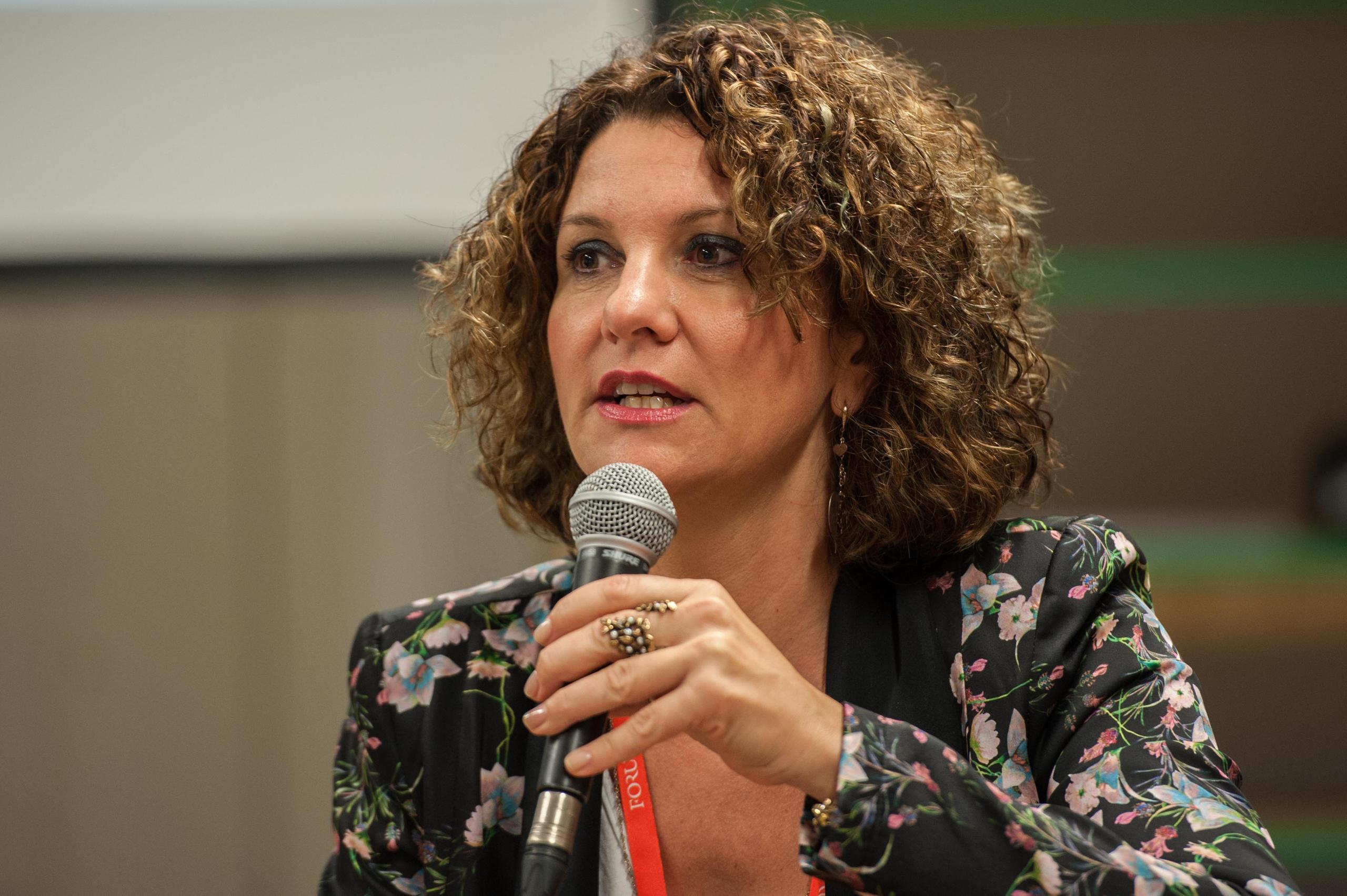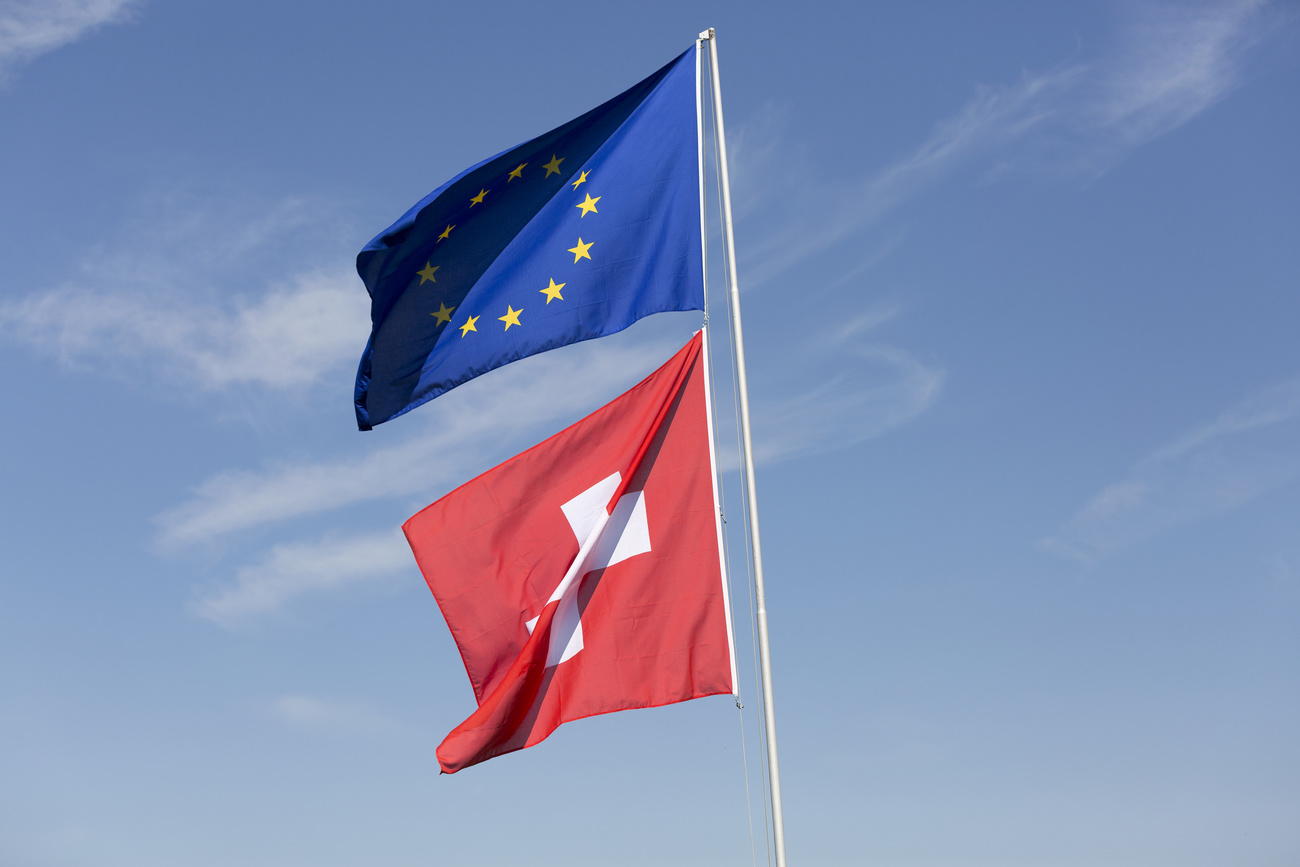Switzerland-EU: a complicated relationship that puts Swiss research at risk
They break up, they get back together, and then they break up again. The rift between Bern and Brussels over the framework agreement is causing frustration among Swiss researchers who depend on EU funding for their work. Universities, companies and start-ups fear that science and research will become "collateral damage" of a negotiation gone wrong.
“I hate you then I love you then I love you then I hate you then I love you”, sang the great Italian singer Mina in 1972. The song was about a complicated and flawed love that was nevertheless “great, great, great”. Maybe as great as the European Union, with which little Switzerland has forged an unconventional “binary” relationship that is complex and fraught with uncertainty.
Will Switzerland be in or out of European research programmes? Everyone is asking this question after the latest effort at agreeing on a Swiss-EU framework agreement failed. Swiss researchers, entrepreneurs, academics and university deansExternal link are wondering whether they will still be able to compete with their European colleagues for generous EU funding to support research and innovation in key areas such as vaccines, artificial intelligence and climate change, even after the failure of the deal between Switzerland and the EU on trade and migration.
Dark Horizons for Swiss universities
The situation is worrying the academic world. Martin Vetterli, president of the Swiss Federal Institute of Technology EPFL, told sciencemag.org that Swiss research could become “collateral damage” in a tough negotiation gone wrong.
Vetterli himself emphasises in no uncertain terms what’s at stake for the future of research in Switzerland. I interviewed him on a Friday afternoon, just a few days after the announcement of the failure of the negotiations on the institutional agreement with the EU. To the question “did you expect it?” he laughed and told me that yes, everyone expected it.
But if everyone expected it, why is nothing certain and everything at stake?
“I like to describe Switzerland’s position with this image: with the breakdown of the framework agreement negotiations, Europe has shot itself in the big foot with a small gunshot, but Switzerland has shot itself in the small foot with a big gunshot.”
Swiss universities also fear the consequences of a break with Brussels. Here’s our full interview with the president of the Federal Institute of Technology in Lausanne (EPFL):

More
‘Switzerland could lose competitiveness in research and innovation’
Although Switzerland is one of the flagships for research on the European scene, it is more dependent on the EU than the EU is on it. A small country like Switzerland cannot expect to have a decisive influence, Vetterli told us.
What do you think? Have you also been affected by the consequences of the failed agreement between Switzerland and the EU? Let me know your opinion!
The ‘no deal’ makes companies suffer
Nor can Switzerland expect to access the benefits of European integration without making any compromises, said Monique Calisti, entrepreneur and digital innovation expert. Calisti is the managing director of the consultancy firm Martel Innovate, which is active in research and development not far from the Zurich Technology Park.
She told us about the possible consequences of the “no deal” with the EU for small and medium-sized enterprises like hers and for the many Swiss start-ups. If cooperation with the EU on research were to be scrapped, the “small fish” of Swiss business would suffer most, she told us, with a note of disappointment in her voice.
Read the interview with Monique Calisti on the consequences of the “no deal” for small and medium-sized businesses:

More
‘We need clarification from the government as soon as possible’
“We don’t have a subsidiary in the EU like so many big companies,” the CEO pointed out. “That’s why we’re thinking of bringing part of our business and team to an EU country. And we would not be the only ones to do so.”
“Switzerland could lose competitiveness in research and innovation”, as well as attractiveness for researchers from Switzerland and the rest of the world, said Vetterli.
A bitter disappointment
Other leading figures from the Swiss academic and university scene also expressed their disappointment at the failure to reach an institutional agreement with the EU. Yves Flückiger, rector of the University of Geneva and president of swissuniversities, said in a tweet that the decision, though not a surprise, was nevertheless a “great disappointment”.
My colleague Isobel Leybold-Johnson reported this in an article. Switzerland’s leading position in research is, according to many, very much at risk. Isobel explains why and what the key players she interviewed think about this:
“Universities’ concerns about the potential breakdown of relations between Bern and Brussels for Swiss research have been mounting over the past few months. Horizon Europe and Erasmus+ aren’t covered by the institutional agreement, but the EU may well react to the dropping of the deal by shutting Switzerland out of these key funding and student mobility programmes, as it has done before (and continues to do so for the Erasmus+).
We had a statement from the umbrella body swissuniversities worried about Switzerland’s top international position in research. We spoke to the Swiss Student Union, which wants Switzerland to rejoin Erasmus+. We don’t yet know how exactly the breakdown of the framework deal will affect Swiss-EU negotiations on these schemes, education officials have confirmed. It’s quite a complicated situation.”

More
Swiss-EU relations and research: what’s next?
A ‘Swexit’ with unpredictable consequences?
“Complicated” was also the UK’s position after the Brexit vote in 2016. Since then, British participation in the Horizon programme has declined massively despite British scientists remaining eligible, explains BBC journalist Marnie Chesterton in her podcast “UK Science post Brexit”.External link
Should we therefore fear the effects of a “Swexit”? Marco Cavallaro, a PhD student at the University of Lugano, has studied the outcomes of uncertainty and financial restrictions on UK and Swiss participation in Horizon 2020 (from 2014 to 2020). From his studyExternal link, it emerges that the impact on universities and the mobility of researchers and students has been less severe for Switzerland than for the UK, which has instead suffered a severe blow after Brexit, the researcher reported to us by email.
But what will happen now that the framework agreement with the EU has blown up? In the field of robotics alone, there are numerous Swiss projects funded by Horizon Europe, the NCCRExternal link wrote to us:
The Horizon 2020 (H2020) programme makes an important contribution to the development of robotics and AI in Switzerland, and many of the same researchers who are part of the NCCR Robotics consortium also benefit from H2020 grants that allow them to collaborate with scientists across Europe.
Some examples? Swiss researchers are actively contributing to the Aerial-Core projectExternal link, which is currently one of the largest European projects on flying robots. But also in FlourishExternal link, which focuses on the potential of robotics in agriculture, and in particular on so-called precision farming. Or the CrowdbotExternal link project, which aims to teach robots to move through crowds and pedestrians, in which two laboratories of the Federal Institutes of Technology in Zurich and Lausanne are involved.
What will become of Switzerland’s ability to advance research in these and other key areas of innovation today? Time will tell.
What do you think? Will Swiss researchers and innovative companies be penalized in the future? Let’s talk about it over a (virtual) coffee.

In compliance with the JTI standards
More: SWI swissinfo.ch certified by the Journalism Trust Initiative









You can find an overview of ongoing debates with our journalists here . Please join us!
If you want to start a conversation about a topic raised in this article or want to report factual errors, email us at english@swissinfo.ch.